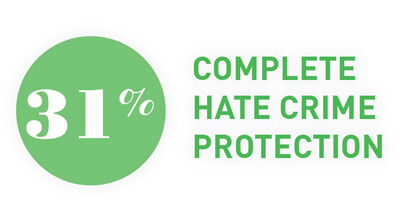Tyler Clementi was 18 at the time of his suicide.
A unanimous ruling by New Jersey’s Supreme Court striking down part of the state’s Bias Intimidation Law has implications for some of the charges on which Dharun Ravi was convicted in the wake of the 2010 suicide of Tyler Clementi, a gay Rutgers University freshman who was Ravi’s dormitory roommate.
The court’s March 17 ruling came in the case of David Pomianek, Jr., a white man convicted by a superior court jury of bias harassment of an African-American co-worker by locking him in a cage at work for a brief period of time. Pomianek considered the incident a “harmless caper,” according to Justice Barry Albin’s opinion.
Under the New Jersey Bias Intimidation statute, a person could be convicted even though they did not intend to intimidate the victim or even have knowledge that the victim might be intimated by their conduct, so long as the victim felt intimidated and believed they were being harassed based on a category protected under the law. In this case it was race. In the Ravi case, it was sexual orientation, which together with gender identity are also outlawed grounds for harassment.
State high court nixes conviction based solely on victim’s perception, a provision that was part of charges against Rutgers student
The jury in Pomianek’s case found a lack of intent or knowledge on his part, but convicted based on the victim’s perceptions of being harassed because of his race. Pomianek’s conviction was reversed by the New Jersey Appellate Division, which concluded that a conviction “based on the victim’s perception” and not on the “defendant’s biased intent” would violate the First Amendment. The Appellate Division then “read into” the statute an intent requirement and sent the case back to the superior court for a new trial.
The state appealed, and the Supreme Court focused on the 14th Amendment’s due process clause rather than the First Amendment.
“In focusing on the victim’s perception and not the defendant’s intent,” wrote Justice Albin, “the statute does not give a defendant sufficient guidance or notice on how to conform to the law. That is so because a defendant may be convicted of a bias crime even though a jury may conclude that the defendant had no intent to commit such a crime.”
Disagreeing with the Appellate Division, however, Albin found that courts cannot “rewrite” a statute to supply a missing intent requirement.
“That level of judicial tinkering with legislation exceeds the bounds of our authority,” he wrote.
Since the court had resolved the case on 14th Amendment grounds, it refrained from addressing the Appellate Division’s First Amendment finding. The court reversed Pomianek’s conviction.
According to the court’s opinion, no other hate crime law in the country imposes liability based solely on a victim’s perceptions. The ruling leaves intact the other two operative provisions of the law, criminalizing intentional or knowing bias intimidation.
Proving the requisite intent has been a major stumbling block in hate crime prosecutions around the country, deterring some prosecutors from bringing hate crime charges in cases that appear, at least circumstantially, to involve defendant bias but where there is not strong evidence of that intent.
The Ravi trial, which concluded in March 2012, became a rallying point for people concerned about the bullying of gay students. He was charged with using a webcam to spy on Clementi having sex with another man in their dorm room and then sharing the images with others online, leading Clementi, a sensitive young man whose recent coming out to his parents had not been a total success, to become despondent and ultimately suicidal. Clementi jumped off the George Washington Bridge just days after learning that the webcam images were spreading on Twitter. Rutgers University undertook major reforms in response to the incident, and Clementi’s family established a foundation to promote understanding for LGBT youth.
Charges were brought against Ravi under several provisions, including the one struck down in the Pomianek case, and the judge allowed evidence about Clementi’s reactions to learning about the webcam spying to be presented to the jury. The New York Times, on March 18, reported that jurors in the Ravi case “said after the conviction that some of the most convincing evidence of Mr. Ravi’s guilt came from Mr. Clementi’s own complaints and online posts after he learned that he had been spied on.”
The Ravi judge was sufficiently concerned about flaws in this provision of the law that he did not enhance Ravi’s sentence to reflect conviction on this ground, according to the Times account. Ravi received a short prison sentence ––30 days –– and was released after only 20 days for good behavior.
The state appealed the judge’s failure to enhance the penalty due to the bias harassment conviction. Ravi’s lawyer raised constitutional concerns in responding to the state’s appeal. The case is still pending in the New Jersey court system, but the State Supreme Court’s ruling makes it likely Ravi will prevail on that point and perhaps even have that portion of his conviction overturned.



































